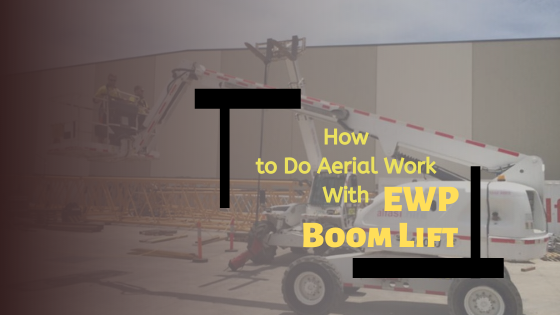Safe operation of Boom Elevating Work Platforms
Duty
holders usually understand the risks EWPs pose to people on the ground,
however, what’s often not fully considered is the increased crush risk to
workers from the EWP platform or within the basket.
When using Boom Elevating Work Platforms EWPs,
the following risk control measures should be implemented:
Selecting the right equipment for the task:
It may be appropriate to use alternative
equipment, such as scaffolding, to reach and carry out the task. Which
equipment you use may depend on:
- Whether the task is located indoors or
outdoors.
- If overhead hazards are in or near the
work zone.
- The condition of supporting surfaces.
Safe work method statements:
A safe
work method statement must be developed and followed for operating an EWPBoom Lift if there’s a risk to people from its movement, including those
working in it. Measures to control crush risks must be documented in the safe
work method statement.
Secondary
guarding devices:
Various secondary guarding devices may help
prevent crush or trap injuries, depending on the type of EWP and work being
done. Examples are:
- Protective Structures: A device attached or fixed to the
existing guardrails that provide a protective barrier around the
operator.
- Sensing
Devices: A device
activated by force or pressure that stops the movement of the EWP to
minimize harm.
Operator training
A minimum standard of EWP
training has been developed.
Before operators start using EWPs training must
be provided about the functions, safe work methods and emergency procedures.
For a boom-type EWP, where the boom length is 11 meters or more, the operator
must hold a High-Risk Work Licence.
Pre-operational checks:
Before use and at the start of
each shift, operators must check and test an EWP in accordance with the
pre-operational checklist.
Maintenance




Comments
Post a Comment